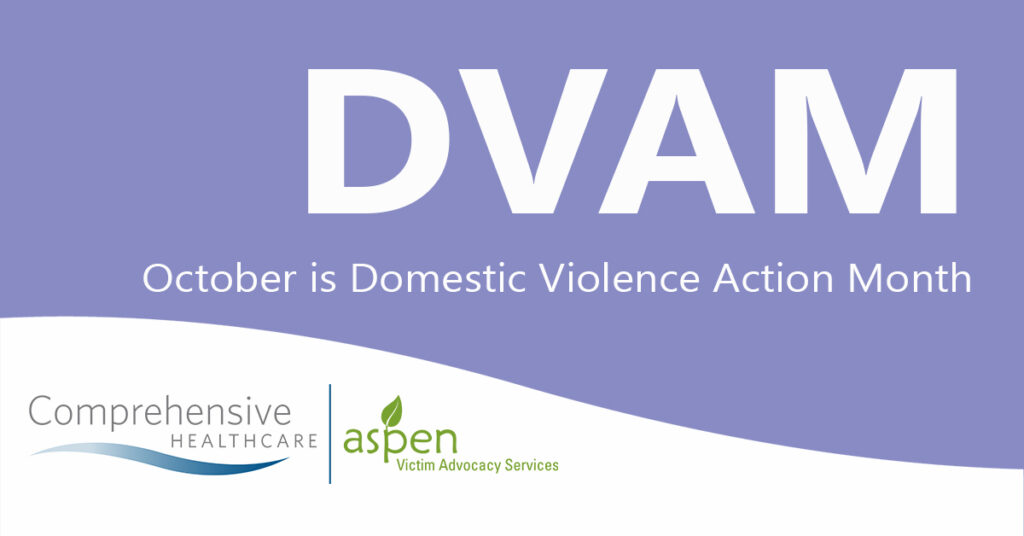October is Domestic Violence Action Month (DVAM)! Throughout October we raise awareness to encourage individuals to get involved in creating safer and healthy communities. The difference between Awareness and Action is that Awareness is about education and getting the word out to the community. Action is about getting out and being involved in the community and changing the discussion about Domestic Violence. DVAM is about taking action to end Domestic Violence.
DVAM evolved from the “Day of Unity” in October 1981 observed by the National Coalition against Domestic Violence. The purpose was to connect advocates across the nations who were working to end violence against women and their children.
Domestic violence affects millions, both women and men, of every race, religion, culture and status. It’s not just punches and black eyes — it’s yelling, humiliation, stalking, manipulation, coercion, threats, and isolation. It’s stealing a paycheck, keeping tabs online, non-stop texting, constant use of the silent treatment, or calling someone stupid so often they feel and believe it.
The fundamental harm of abuse is a loss of autonomy. Everyone should be free to make their own choices in relationships. As friends and family who want to help, we can restore those choices that have been restricted or taken away by abuse.
Warning Signs of Domestic Violence
• Their partner puts them down in front of other people.
• They are constantly worried about making their partner angry.
• They make excuses for their partner’s behavior.
• Their partner is extremely jealous or possessive.
• They have unexplained marks or injuries.
• They have stopped spending time with friends and family.
• They are depressed or anxious, or noticeable changes in their personality.
If someone you love is being abused, it can be so difficult to know what to do. Your instinct may be to “save” them from the relationship, but it’s not that easy. After all, there are many reasons why people stay in abusive relationships, and leaving can be a very dangerous time for a survivor of domestic violence.
How to Help a Friend or Family Member
• Acknowledge that they are in a very difficult and scary situation.
• Be supportive and listen.
• Let them know that the abuse is not their fault.
• Reassure them that they are not alone and that there is help and support out there.
• Let them know that you believe them and are available to help whenever they may need it.
• Provide them with phone numbers or websites (such as our Aspen Victim Advocacy web page) where they can receive additional information and support.



